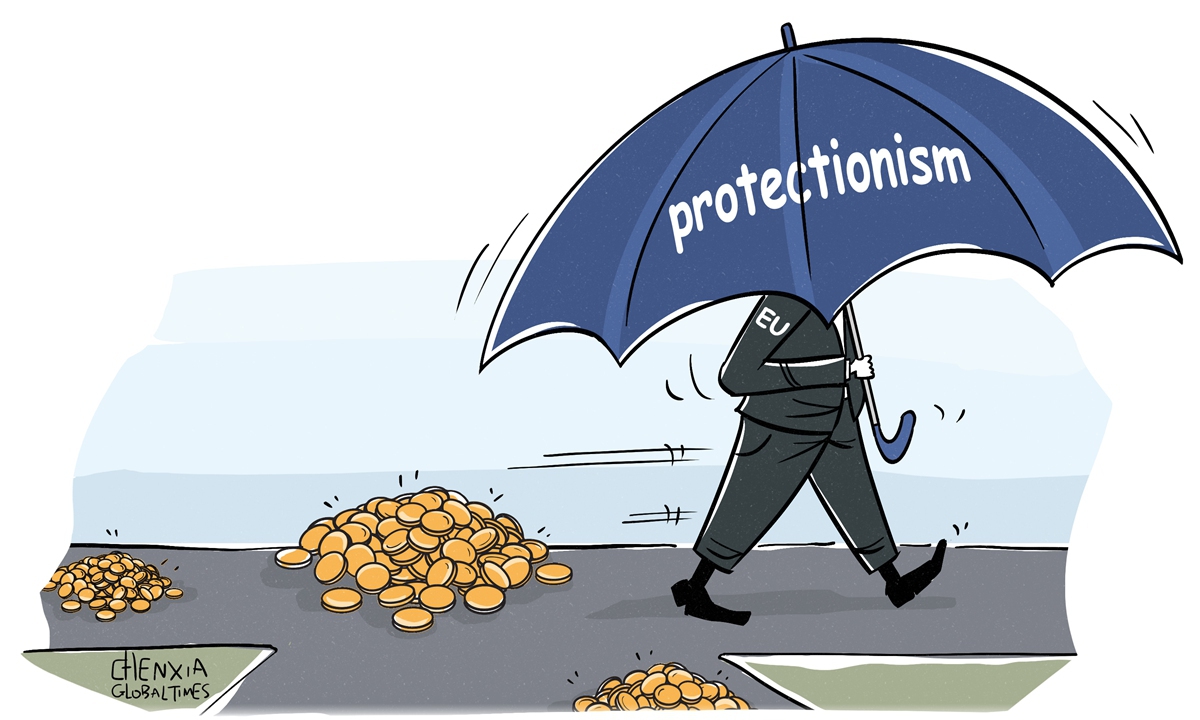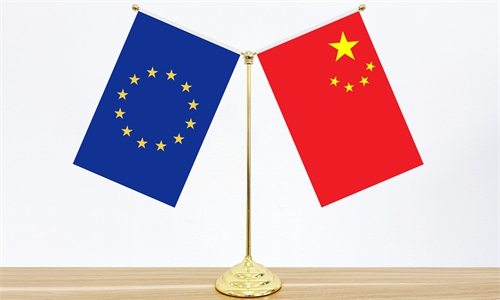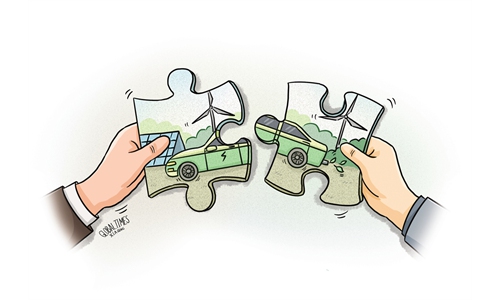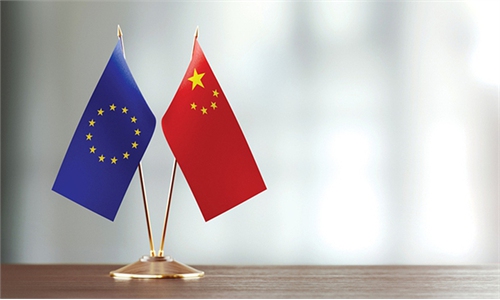
Illustration: Chen Xia/Global Times
Amid trade tensions between China and the EU, simmering tough sentiment within the EU toward Chinese manufacturing has raised serious concerns about the potential for further trade conflicts. This makes it particularly necessary and urgent for China to take necessary measures to remind the EU to rein in the trend of escalating trade disputes.For instance, Italian tomato sauce magnate Francesco Mutti recently urged the EU to protect farmers from the "unfair" competition posed by paste made in China's Xinjiang region, according to the Financial Times.
"We should stop the import of tomato paste from China or add a 60 percent tax on it so that its cost will not be so different from Italian [products]," Francesco Mutti, chief executive of Italian company Mutti, said in an interview with the Financial Times.
While tomato paste constitutes only a small segment of trade between China and the EU, the CEO's remarks highlight the troubling trend of increasing reliance on trade protectionism within the bloc regarding trade issues with China. This is particularly concerning given the already strained economic and trade relations due to the EU's tariffs on Chinese electric vehicles. Such signals have increased fears that the trade dispute may extend into other sectors.
Against this backdrop, if the EU continues to adopt a protectionist approach, it may provoke further trade friction or even escalate into a trade war. The trade relationship between China and the EU is fundamentally mutually beneficial, with each side possessing distinct advantages.
China's manufacturing industry excels in cost controls and economies of scale, while the EU is at the forefront of technological innovation and brand value. By fostering cooperation, both parties can achieve optimal resource allocation and promote joint economic development. Therefore, concerns regarding so-called "unfair competition from China" should not serve as a justification for inciting trade protectionism.
Economic factors alone may not be sufficient to drive the EU to continuously adopt a tough stance in its economic and trade relations with China; geopolitical considerations may also play a role.
If this is the case, then additional protectionist measures could not only harm China-EU trade relations but also heighten the risk of broader trade wars. Such a scenario could subject the global economy to unnecessary shocks, particularly given the fragile state of the global economic recovery, where any form of trade friction could further exacerbate economic uncertainty.
Since the outbreak of the China-EU electric vehicle (EV) dispute, China has persisted in resolving trade disputes through talks and negotiations and has been making the utmost efforts to reach a deal.
Even after the EU's final ruling on the anti-subsidy investigation into China-made EVs, the Chinese Ministry of Commerce, while vowing the country will take "all necessary measures" to firmly safeguard the legitimate rights and interests of Chinese companies, still expressed hope that the EU, with a constructive attitude, can continue the negotiations with China and reach a solution acceptable to both sides at an early date by adhering to pragmatic and balanced principles and considering each other's concerns in order to avoid the escalation of trade friction.
However, there is indeed growing concern that China and the EU will be locked in fierce trade row. We believe that the primary responsibility for preventing the escalation of the situation lies with the EU side. This is because decisions and tough voices from the EU are the direct cause of the current situation.
If the EU continues to implement unreasonable measures that do not conform to trade norms and are not conducive to the long-term stable development of China-EU economic and trade relations, it will only lead to further intensification of trade tensions between the two sides.
In light of the protectionist climate within the EU, China's restraint could even be interpreted as a sign of weakness, potentially emboldening the EU to pursue even more stringent protectionist policies.
China needs to take the necessary measures to stop the EU's attempt to strike further at Chinese manufacturing, so as to safeguard the legitimate rights and interests of Chinese industries and companies, and maintain a fair trade order.
The ultimate goal is to push the EU to return to the negotiating table and resolve these disputes through constructive dialogue and consultation, fostering a more balanced and equitable trade relationship that benefits both parties.



